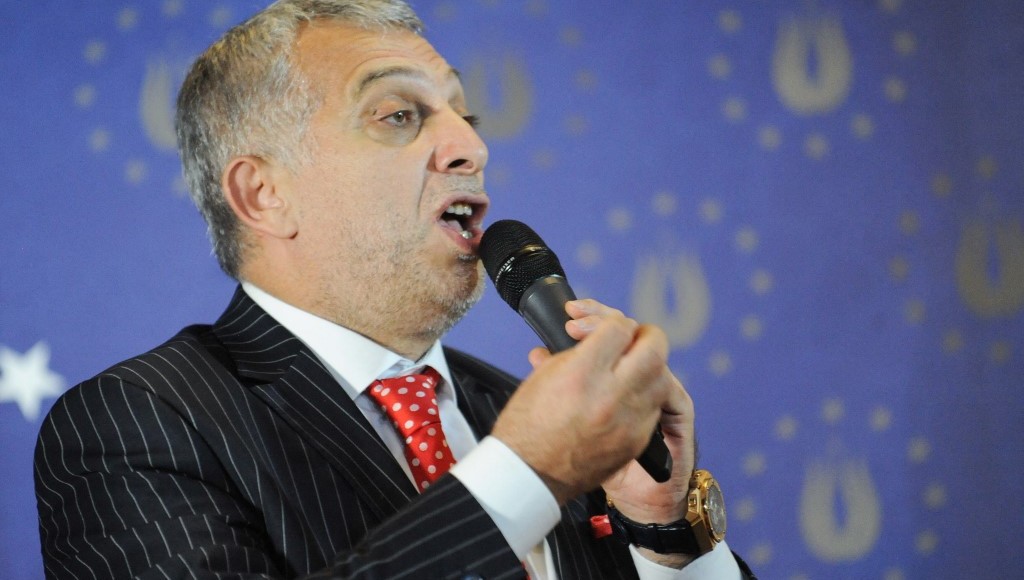Metin Külünk, a former lawmaker from Turkey’s ruling Justice and Development Party (AKP) who was once a close ally of President Recep Tayyip Erdoğan, has urged Turkey’s leader to consider stepping down while still at the height of his political influence, warning that the president’s support base is steadily declining.
Külünk’s comments, made during an interview aired by the 12punto news website, come in the wake of the March 31 local elections, which dealt a significant blow to the AKP.
“Since March 31, Erdoğan’s base has been eroding,” Külünk said. “He should leave on a high note.”
The March 31 local elections marked a critical moment in Turkish politics, as the AKP, which has dominated the country’s political landscape for over two decades, suffered its most substantial electoral defeat since its founding. The main opposition Republican People’s Party (CHP) secured 37.7 percent of the vote nationwide, outperforming the AKP, which garnered 35.4 percent. This was the first time in 47 years that the CHP emerged as the leading party in local elections, reflecting growing discontent with Erdoğan’s leadership.
The loss was particularly severe in Turkey’s major urban centers. In İstanbul, a city historically considered the AKP’s stronghold and where Erdoğan himself began his political ascent, the CHP’s candidate, Ekrem İmamoğlu, won the mayoral seat, defeating the AKP candidate by a significant margin. Similarly, in Ankara, the CHP’s Mansur Yavaş secured the mayoralty, further indicating the shifting political landscape.
Külünk, who is known for his close relationship with Erdoğan, pointed to these electoral setbacks as a sign that the president’s once unassailable position is weakening. He suggested that Erdoğan’s legacy would be better preserved if he chose to step down voluntarily rather than risk further erosion of his support. “The street no longer says, ‘Our president is good, but those around him are bad,’” Külünk said. “Regrettably, the trust in our president from three or four years ago is declining.”
Külünk also raised concerns about external pressures on Erdoğan, particularly from Western powers, regarding Turkey’s defense strategies. He specifically mentioned the S-400 missile defense system, which has been a point of contention between Turkey and its NATO allies. “There is a model that pressures our president to shelve the S-400s and turn Turkey into a country under Western control,” Külünk said. He argued that these pressures have placed a significant burden on Erdoğan’s leadership.
In addition to political challenges, Külünk discussed the economic difficulties facing Turkey, which have further eroded the AKP’s popular support. He reminisced about Erdoğan’s earlier image as a protector of the working class, small business owners and farmers, contrasting it with the current economic reality. “Erdoğan was the big brother of the workers, the tradesmen and the farmers. He was our Erdoğan, our Tayyip,” Külünk said. However, he criticized the growing wealth inequality that has emerged during the AKP’s tenure, noting that the party’s economic policies have disproportionately benefited the wealthy elite.
Külünk’s remarks are part of a broader wave of self-criticism within the AKP, as several high-profile figures acknowledge that the party has strayed from its founding principles. These internal critiques reflect a growing recognition within the party that it faces significant challenges ahead, particularly as it grapples with the consequences of its electoral losses and declining public support.
As Erdoğan celebrated the AKP’s 23rd anniversary in August, he described the party’s journey as a “success story” but also acknowledged the need for renewal. During an event at the party’s Congress Center in Ankara, Erdoğan called on party members who feel exhausted to take a break rather than continue in their roles half-heartedly. Despite the setbacks, Erdoğan expressed confidence that the AKP would remain in power for years to come.
Erdoğan and the AKP are today held responsible for widespread corruption accompanied by economic deterioration with inflation over 60 percent, unemployment of more than 9 percent, a constantly rising cost of living and an oppressive environment where the slightest criticism of the government can be used as a pretext to send people to jail.



